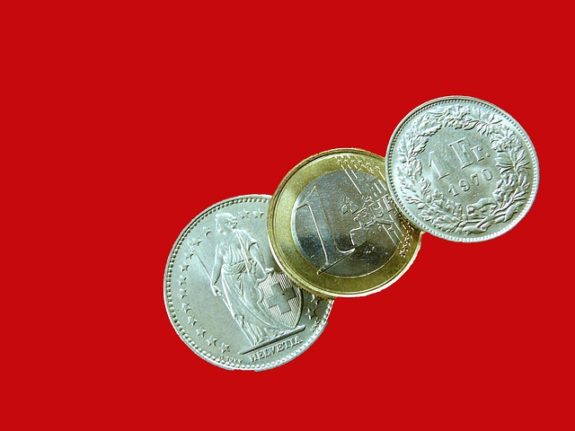Say you are a foreign resident in Switzerland and find yourself short of funds, and are unable to pay your monthly bills.
Can you count on your canton’s public coffers to help you out?
Much depends on your status in the country.
If you have a residency permit, have been working in Switzerland and contributing to the social security scheme, then you can receive financial assistance, in form of subsidies, from your local authority.
This is how it works
For instance, if the obligatory health insurance premiums exceed 8 percent of the household income, then you are eligible to receive this help.
However, your canton of residence will look not only at your earnings, but at any other financial assets you hold as well.
So if your income is low but you have plenty of money in the bank in the form of savings or other investments, you will not qualify.
Generally speaking, any resident who is a low earner or has a large number of children — regardless of nationality — could be eligible for subsidised premiums, though criteria, as well as amounts, vary from one canton to another.
READ ALSO : How do I apply for healthcare benefits in Switzerland?
What about housing?
Low-earners (again, regardless of nationality) are entitled to have their rents subsidised, under certain circumstances — the conditions as well as the income threshold is determined by cantonal authorities.
Generally speaking, in order to claim this help, you must prove that you live in the cheapest available housing in your area. (Needless to say, if you reside in a luxury apartment, you can’t ask for rent subsidy.)
If you don’t fulfill this particular condition, you will be told to move to cheaper accommodations before claiming any benefits.
Exceptions to this rule include situations such as a large number of minor children living in the household, which may make relocation — that is, finding a sizeable apartment at a cheaper price — unrealistic.
The amount of rent reduction will be set by the authorities.
Is any other help available?
If you can’t afford anything in Switzerland which, admittedly, is an extreme and rare situation for anyone working full-time and already receiving either health insurance or housing subsidy (or both), then your only other option is applying for welfare.
This, however, should be the absolute last resort if you want to remain in Switzerland and eventually apply for naturalisation, or even have your work permit renewed.
That’s because being on public assistance is grounds for refusal of citizenship — unless all the money is repaid in full in advance of your application.
READ ALSO: Can I still get Swiss citizenship after claiming social benefits?
What about disabilities?
This falls under the general social security scheme, so if you are working in Switzerland, then you are eligible to receive these benefits.
The only exception may be people from outside the EU /EFTA — unless your country of origin has concluded a social security agreement with Switzerland.
This link provides additional information about these countries.
If you qualify for disability (and medical records confirm this), you can apply for these benefits at the social security office of your canton.
There are some other things you should keep in mind as well:
Not all foreigners who have a residency permit can apply for financial assistance.
If you came to Switzerland on a temporary permit (L or B), then you don’t have access to any benefits.
And if you ‘bought’ your Swiss residency, you can’t resort to any public help either.
The condition of your stay in Switzerland is that you should be self-sufficient enough to live here without having to work or resort to welfare benefits.



 Please whitelist us to continue reading.
Please whitelist us to continue reading.
Member comments